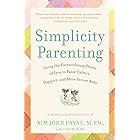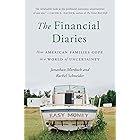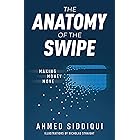| Kindle Price: | $11.99 |
| Sold by: | Macmillan Price set by seller. |
Your Memberships & Subscriptions

Download the free Kindle app and start reading Kindle books instantly on your smartphone, tablet, or computer - no Kindle device required.
Read instantly on your browser with Kindle for Web.
Using your mobile phone camera - scan the code below and download the Kindle app.

OK
 Audible sample Sample
Audible sample Sample 


Subtract: The Untapped Science of Less Kindle Edition

Explore your book, then jump right back to where you left off with Page Flip.
View high quality images that let you zoom in to take a closer look.
Enjoy features only possible in digital – start reading right away, carry your library with you, adjust the font, create shareable notes and highlights, and more.
Discover additional details about the events, people, and places in your book, with Wikipedia integration.
"You need to read this book." —Adam Grant, #1 New York Times bestselling author
“A great book changes the world you live in, revealing mysteries you didn't even know were there. This is a great book." —Sendhil Mullainathan, MacArthur fellow and author of Scarcity
“Klotz shows us how deleting things from our lives can lead us to exciting new places.”—Carol Dweck, author of Mindset
We pile on “to-dos” but don’t consider “stop-doings.” We create incentives for good behavior, but don’t get rid of obstacles to it. We collect new-and-improved ideas, but don’t prune the outdated ones. Every day, across challenges big and small, we neglect a basic way to make things better: we don’t subtract. Leidy Klotz’s pioneering research shows us what is true whether we’re building Lego models, cities, grilled-cheese sandwiches, or strategic plans: Our minds tend to add before taking away, and this is holding us back.
But we have a choice—our blind spot need not go on taking its toll. Subtract arms us with the science of less and empowers us to revolutionize our day-to-day lives and shift how we move through the world. More or less.
- LanguageEnglish
- PublisherFlatiron Books
- Publication dateApril 13, 2021
- File size8477 KB
Customers who bought this item also bought
From the Publisher



Editorial Reviews
Review
"12 Best Business Books of 2021," Wealth Management
Behavioral Scientist's Notable Books of 2021
Habit Weekly top 100 Behavioral Design Books
The Growth Equation 21 best books of 2021
RARE Center for Behavior and Environment Summer Reads
Economics in Ten Recommended Reading
Inc. 12 New Books Every Leader Should Read this Summer
"A good book whisks you on a journey to foreign lands filled with exotic ideas and captivating stories. A great book changes the world you live in, pulling back the curtain to reveal mysteries you didn't even know were there. This is a great book. Anyone who has interest in understanding their lives better--and who doesn't--should read it."―Sendhil Mullainathan, MacArthur fellow and author of Scarcity
“This is a captivating, perceptive read on one of the most basic mistakes that we make in the pursuit of success and happiness. Combining his expertise in architectural engineering and behavioral science, Leidy Klotz pinpoints a gaping hole in our mental math: we’re constantly adding tasks, commitments, and possessions to our lives while neglecting to subtract any. If the defining word of your life is ‘more,’ you need to read this book.” --Adam Grant, New York Times bestselling author of THINK AGAIN and ORIGINALS, and host of the TED podcast WorkLife
“Leidy Klotz leads the reader on an intellectual journey as he explores the fascinating question: In designing our world, why do we always seem to add rather than subtract? Subtract is a great blend of academic research, stories, and practical tools. Enjoy the journey!”―Dan Heath, co-author of Made to Stick and author of Upstream
“The best book I read this year.” ―Bob Sutton, New York Times bestselling author of The No Asshole Rule
“Behavioral science at its best helps people to improve their lives. It may help them think about old things in new ways or add new and better habits. In Subtract, Leidy Klotz shows us how deleting things from our lives can lead us to exciting new places.”―Carol Dweck, author of Mindset
“Subtract is simply brilliant. With engaging and moving prose, Leidy Klotz travels back and forth between kids’ toys, evolution, Dr. Seuss, anthropology, racism, cognitive psychology, urban planning, global warming, and architecture to teach us that often, the best way to solve problems is by taking things away―by subtracting. To learn how to subtract, you must first add Subtract to your reading list.”―Barry Schwartz, author of The Paradox of Choice and Why We Work
“There could be no more important time to read this well-researched book, when so much needs subtracting: the prejudices, norms, and rules that perpetuate structural racism in our country; the mindless consumption that puts us on the hedonic treadmill and destroys biodiversity and a livable climate on our planet.” ―Elke Weber, Gerhard R. Andlinger Professor in Energy and the Environment
"The heart of Leidy Klotz's SUBTRACT is a brilliant catch-all philosophy for living well: humans are predisposed to add―money, ideas, inventions, possessions, complexity―but the route to well-being is to take away. Subtraction doesn’t require you to be rich, or to have superhuman self-control, or plenty of free time. All you need is the right attitude, and a toolbox that will help you learn you to subtract effectively. SUBTRACT is that toolbox." --Adam Alter, New York Times bestselling author of IRRESISTIBLE and DRUNK TANK PINK
“An engaging style and breadth of examples that guides the reader through an important new view of thinking by removing.”―Eric J. Johnson, author of The Elements of Choice
"The novel perspectives offered in Subtract make it a worthwhile read for decision-makers everywhere. Through its collection of contemporary psychology, anthropology, and economics, Subtract challenges its audience to defy standard modes of thinking and work to enhance organizations and cultures to reach new potentials." ―J. Alexander Thew, War on the Rocks
About the Author
Product details
- ASIN : B088DQMMXD
- Publisher : Flatiron Books (April 13, 2021)
- Publication date : April 13, 2021
- Language : English
- File size : 8477 KB
- Text-to-Speech : Enabled
- Screen Reader : Supported
- Enhanced typesetting : Enabled
- X-Ray : Enabled
- Word Wise : Enabled
- Sticky notes : On Kindle Scribe
- Print length : 293 pages
- Best Sellers Rank: #208,086 in Kindle Store (See Top 100 in Kindle Store)
- #159 in Social Psychology & Interactions
- #176 in Business Decision-Making
- #536 in Science & Math (Kindle Store)
- Customer Reviews:
About the author

Leidy Klotz is a Professor at the University of Virginia, with appointments in Engineering, Architecture, and Business. He studies the science of design: how we transform things from how they are to how we want them to be. He has secured over $10 million in competitive funding to support this new area of research. To share research insights with those who can use them, he has written more than 80 articles and two books. To apply these insights to address climate change and systemic inequality, Leidy also works directly with organizations including the World Bank, the World Design Organization, and ideas42.
Before becoming a professor, Leidy managed the design and construction of large engineering projects and before that he played professional soccer.
Customer reviews
Customer Reviews, including Product Star Ratings help customers to learn more about the product and decide whether it is the right product for them.
To calculate the overall star rating and percentage breakdown by star, we don’t use a simple average. Instead, our system considers things like how recent a review is and if the reviewer bought the item on Amazon. It also analyzed reviews to verify trustworthiness.
Learn more how customers reviews work on AmazonReviews with images
-
Top reviews
Top reviews from the United States
There was a problem filtering reviews right now. Please try again later.
Subtraction isn't meant to be this end-all-be-all panacea to our problems; however, it's an extremely powerful tool to consider when we go about searching for solutions. While it is much easier to default to addition, I will personally try to apply this framework of subtraction in my own day to day.
Personally, I enjoyed all of the examples that Leidy provides. It shows how ubiquitous subtraction is in problem solving and allows the reader to see subtraction through a multitude of different lenses and contexts. Whether it's a challenge as simple as connecting two Lego structures in the least cumbersome way possible, or redesigning a bike such as the strider bike, to much larger challenges such as climate change, subtraction can--and arguably should--play a vital role in the solution.
Leidy is incredibly brilliant, and his work on subtraction is novel and has the potential to be transformative in the way people attack the grand challenges of our time. I highly recommend others give this book or any of his other published works a read.
Reviewed in the United States on September 29, 2021
Subtraction isn't meant to be this end-all-be-all panacea to our problems; however, it's an extremely powerful tool to consider when we go about searching for solutions. While it is much easier to default to addition, I will personally try to apply this framework of subtraction in my own day to day.
Personally, I enjoyed all of the examples that Leidy provides. It shows how ubiquitous subtraction is in problem solving and allows the reader to see subtraction through a multitude of different lenses and contexts. Whether it's a challenge as simple as connecting two Lego structures in the least cumbersome way possible, or redesigning a bike such as the strider bike, to much larger challenges such as climate change, subtraction can--and arguably should--play a vital role in the solution.
Leidy is incredibly brilliant, and his work on subtraction is novel and has the potential to be transformative in the way people attack the grand challenges of our time. I highly recommend others give this book or any of his other published works a read.

The author notes that addition is perhaps humanity’s oldest cultural heritage. First came addition, then came civilization.
Then came Keynesian economics.
In 1949, President Harry Truman addressed a nation of post-depression war-torn Americans. In his speech, Truman expounded that the way to world peace is if America would take up the mantle of ensuring that people in every country had more food, more clothing, and more access to the goods and services of a rich life. So,
Based on the recommendations , the citizens of the free world would be encouraged to add like they’d never added before.
The reasoning of economist John Maynard Keynes was this: If everyone bought more products, then companies would expand in number & size , which provides more jobs, so that people could afford more goods and services. Truman extended this to declare that the key to world peace is economic growth. Truman’s speech gave rise to modern consumer capitalism. & so, ever since, we incessantly buy more & more to add to our lives in the name of peace & prosperity for all.
Now the avg American home has over 250,000 unnecessary items.
However , The author makes the irrefutable point that no matter how many hours you work, you can not earn more time; that time is forever spent.
We now live in a culture of busyness; where some even brag of living on little sleep. Or wear working 60-80 hours a week as a badge of honor. All this is obviously stress & anxiety producing. The author offers for contrast that a person living in the Middle Ages had more leisure time than any of us do.
So evolution had our brains motivate us & reward us for "more" beacause food was scarce. And in the modern world we are locked in a culture of acquisition. So the thought of subtraction is often over-looked.
Verified In a very simple experiments, such as: There are 2 towers made by simply stacking blocks & a bucket of more blocks. The towers are not the same height & subjects are asked to make the towers the same height. 95% of subjects added a block to the shorter tower. Only 5% thought to take one block away from the taller tower.
In the real world, construction costs are less if you use less blocks. There are many stories in the book showing the suprising power of subtraction. One such story was a lady who determined that cinderblocks are only load-bearing on the outside, so she made hollow blocks which saved a fortune. The blocks are just as strong, but much lighter & much cheaper.
Computer scientist Cal Newport preaches digital minimalism; chef Jamie Oliver distills recipes down to five ingredients; and the tidying savant Marie Kondo declutters homes. Each of these gurus guides us to specific ways we can subtract to improve. And their counterintuitive advice brings joy.
Da Vinci defined perfection as when there is nothing left to take away; seven centuries since William of Ockham noted that it is “in vain to do with more what can be done with less,” and two and a half millennia since Lao Tzu advised: “To attain knowledge, add things every day. To attain wisdom, subtract things every day.”
When confronted with a problem, Consider what you might Subtract, before spend the effort lookibg for what you can add.
Top reviews from other countries
I would recommend a book with a narrow topic , like minimalism if want to get rid of stuff.
Too much repetition, too many words, too many tangents... This book is in urgent need of subtraction and a good editor. Not worth the time to read it.
















